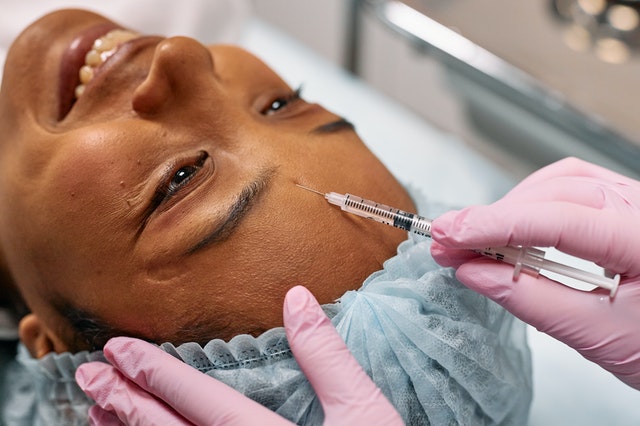How Often Should You Get Botox?

Botox Cosmetic is a minimally invasive, non-surgical procedure that can reduce the appearance of moderate to severe lines and wrinkles. This popular anti-aging treatment is a neuromodulator and works by relaxing the muscle activity that causes lines and wrinkles to form.
Botox injections are noted primarily for the ability to reduce the appearance of facial wrinkles. They’re also used to treat conditions such as neck spasms (cervical dystonia), excessive sweating (hyperhidrosis), an overactive bladder, and lazy eye. Botox injections may also help prevent chronic migraines.
A study by the American Society of Plastic Surgeons found that Botox injections became the most popular non-invasive cosmetic procedure in 2020, with 4.4 million procedures performed last year.
The average age to get Botox is around 30. This marks the time when women and men start to notice tiny lines in their foreheads and wrinkles around their eyes. And hitting them early, before they get worse, makes for a more effective treatment. Botox is approved for patients who are 18 years and older and most experts agree that patients in their mid to late 20s and early 30s are at a good age for preventative Botox treatment.
Do you have to keep getting Botox once you start?
Generally, the effects of Botox treatment are temporary, lasting about four to six months. If you like the results, you may decide to continue with several treatments a year.
How Often Should You Get Botox?
Generally, the effects of Botox treatment can last for up to three to four months but many patients are very satisfied getting their treatments 6 months apart. Others who dislike having any movement in the treated area at all, prefer every 4 months. Nevertheless, if your facial muscles begin to train themselves to contract less, the period of time for each treatment may be extended longer than three or four months.
What to expect after your treatment with Botox
• You will not feel anything immediately afterward.
• The initial effects become visible within 48 to 72 hours.
• The maximum effect is reached in about one to two weeks: the area injected will feel more relaxed. You will also notice less unwanted movement in the muscles which have been treated.
• The effect of treatment generally lasts approximately four months, after which further treatment may be required.
• It is very important to carry out any exercises and stretches given to you by your therapist after having your treatment. Having Botox gives you a window of opportunity to change the way your face moves and to try and separate out movements that have become linked together. It should be used in conjunction with the home exercise program given to you by your therapist to maximize your recovery.
What are the risks of Botox treatment?
The dosage of botulinum toxin in Botox is very small and therefore the risks are minimal. It is generally a safe and effective treatment method. Nevertheless, side effects can occur and these usually develop in a few days and may last up to two weeks. It is important to note that sometimes it may take a few weeks for side effects to appear. The potential side effects relate to which area was treated. They can include:
• Bruising or swelling at the site of the injection.
• Slight feeling of nausea or headache.
• Tiredness or pain in the arms and legs.
• Temporary drooping of the eyebrow or upper eyelid.
• Brief visual disturbances (double vision).
• Dry mouth and/or eyes.
• Skin rash or itching.
• Breathing difficulties and/or swallowing difficulties.
• Muscle wasting.
• On rare occasions, patients may have an allergic reaction to Botox injection. This may even occur a few weeks after the injection, and will require immediate medical attention. Symptoms can include swallowing or speech difficulties; wheezing, feeling faint or shortness of breath; hives, and swelling of the face and/or throat.
Is Botox always safe to use?
No, certain circumstances or preexisting medical conditions mean that Botox is not always appropriate for everyone.
Botox treatment is not appropriate if you:
• Are allergic to Botox or any other ingredients of the injection.
• Have an infection at the proposed site of the injection.
• Are pregnant or breastfeeding.
• Suffer from myasthenia gravis or Lambert-Eaton syndrome.
• Have a blood-clotting disorder.
• Have a needle phobia.
• Have a psychiatric disorder.
• Object to blood donor products, as Botox contains human serum albumin.
Tell the person giving you your treatment if you:
• Have had any problems with injections into your muscles in the past.
• Have inflammation in the muscles or skin area your doctor plans to inject.
• Have significant weakness or wasting of muscles which your doctor plans to inject.
• Have ever suffered from swallowing, breathing disorders, or aspiration (inhalation of food or fluids).
• Suffer from any other muscle problems or chronic diseases affecting the muscles.
• Have glaucoma.
• Have had any surgery or injury to your head or neck in the past.
• You are scheduled to have any surgery in the near future.





